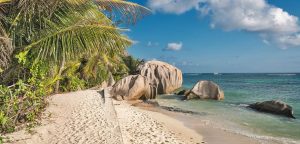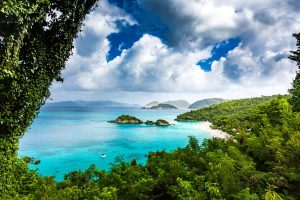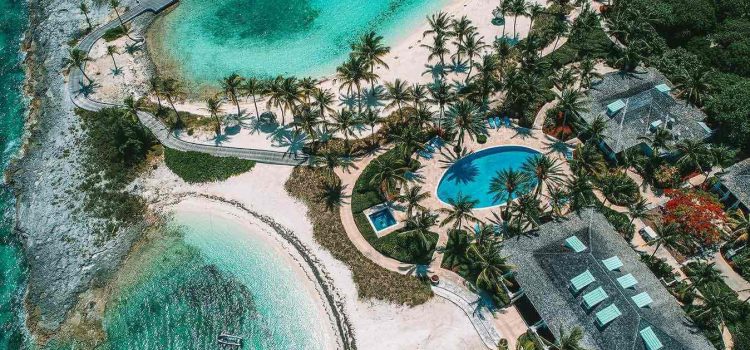
Remote islands have long captivated the imagination of adventurers and nature enthusiasts alike. In this comprehensive guide, we will delve into the enchanting world of untouched shores, unveiling the unparalleled beauty and ecological richness of these isolated paradises.
Discovering Hidden Treasures
Remote islands offer a sanctuary for biodiversity, harboring a myriad of unique flora and fauna found nowhere else on Earth. travel guide from the lush rainforests of the Amazon to the coral reefs of the South Pacific, each island boasts its own distinct ecosystem waiting to be explored.
Allure of Pristine Beaches
One of the defining features of remote islands is their untouched shorelines, where ivory sands meet crystal-clear waters in a harmonious embrace. These pristine beaches provide the perfect backdrop for relaxation and rejuvenation, away from the hustle and bustle of modern life.

Exploring Uncharted Waters
Venture beyond the shoreline to uncover the hidden wonders lurking beneath the surface. Snorkelers and divers will delight in the vibrant coral gardens and kaleidoscopic marine life that inhabit these unspoiled waters.
Encountering Exotic Wildlife
Remote islands are havens for wildlife, offering refuge to endangered species and elusive creatures alike. Embark on guided nature walks to spot rare birds, elusive mammals, and colorful reptiles in their natural habitat.
Preserving Natural Heritage
Despite their remote location, these islands face growing threats from climate change, overdevelopment, and unsustainable tourism. Conservation efforts are crucial to safeguarding the fragile ecosystems and cultural heritage of these pristine landscapes.
Supporting Sustainable Tourism
By practicing responsible travel habits and supporting eco-friendly initiatives, visitors can minimize their environmental footprint and contribute to the preservation of remote island ecosystems for future generations to enjoy.
For those seeking solace amidst nature’s embrace, island escapes offer Digital Detox: Disconnecting from Technology, providing a refuge from the digital distractions of modern life. Embark on transformative journeys with Yoga and Meditation Retreats, where serenity meets self-discovery in tranquil settings infused with positive energy. Embrace eco-friendly living with Eco-friendly Accommodations that harmonize with the natural environment, minimizing ecological footprint while maximizing comfort.
Natural Wonders of Remote Islands
Embark on an unforgettable journey to remote islands and unlock the secrets of their untouched shores. Immerse yourself in the pristine beauty of these paradisiacal landscapes, where nature reigns supreme and adventure awaits at every turn.
Enchantment of Isolation
Remote islands offer a rare opportunity to disconnect from the modern world and reconnect with nature in its purest form. Far from the chaos of urban living, these secluded oases provide a tranquil refuge for those seeking solace and serenity.
Traversing Uncharted Territories
Explore remote islands off the beaten path and blaze your own trail through untamed wilderness. From dense jungles to towering cliffs, each island presents a new frontier waiting to be conquered by intrepid explorers.
Embracing Cultural Diversity
Remote islands are not only bastions of natural beauty but also repositories of rich cultural heritage. Immerse yourself in the vibrant traditions and customs of indigenous communities, learning from their wisdom and resilience in the face of adversity.
Preserving Ecosystem Integrity
As stewards of the environment, it is our responsibility to protect the fragile ecosystems of remote islands from exploitation and degradation. By advocating for sustainable practices and conservation initiatives, we can ensure the continued survival of these invaluable natural wonders.

1. What makes remote islands unique?
Remote islands are characterized by their isolation, which has led to the evolution of unique ecosystems and endemic species found nowhere else on Earth.
2. How can I minimize my environmental impact while visiting remote islands?
You can reduce your environmental footprint by practicing responsible tourism, such as using biodegradable sunscreen, avoiding single-use plastics, and supporting eco-friendly accommodations and tour operators.
3. Are remote islands safe to visit?
While remote islands offer unparalleled beauty and adventure, it’s important to research and prepare accordingly, taking into account factors such as weather conditions, health risks, and local regulations.
4. What activities can I enjoy on remote islands?
From snorkeling and diving to hiking and wildlife spotting, remote islands offer a plethora of outdoor activities for nature enthusiasts and adventure seekers alike.
5. How can I support conservation efforts on remote islands?
You can support conservation initiatives by volunteering with local organizations, donating to conservation projects, and advocating for policies that protect the natural and cultural heritage of remote islands.
6. What are some of the major threats facing remote islands today?
Remote islands face threats such as climate change, habitat loss, invasive species, and overdevelopment, highlighting the urgent need for concerted conservation action to preserve these fragile ecosystems.
Conclusion
Exploring the untouched shores of remote islands is a transformative experience that offers both adventure and enlightenment. By embracing sustainable practices and fostering a deeper appreciation for the natural world, we can ensure that these pristine landscapes remain intact for generations to come.










